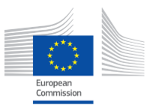
OBC Transeuropa, together with the European Centre for Press and Media Freedom and other partners, starts Rapid Response Mechanism to support independent journalism. The project is co-funded by the European Commission
March 1st marks a new chapter in the support for journalists under threat – it is the start of the Europe-wide rapid response mechanism (RRM) for violations of press and media freedom. The RRM is conducted by a consortium led by the European Centre for Press and Media Freedom in Leipzig (ECPMF ). The Mechanism is designed to mitigate the consequences of the recently observed deterioration of press and media freedom in certain EU Member States and Candidate Countries.
The consortium consists of the ECPMF, ARTICLE 19 , the European Federation of Journalists (EFJ), Free Press Unlimited (FPU), the Institute for Applied Informatics at the University of Leipzig (InfAI), International Press Institute (IPI) and CCI/Osservatorio Balcani e Caucaso Transeuropa (OBCT).
The work programme of the consortium comprises the development of coordinated rapid responses to violations of press and media freedom. Thematic focal points are online harassment, especially against female journalists, legal threats like SLAPP (Strategic Litigation Against Public Participation) lawsuits, the fight against impunity and the situation of media freedom in specific countries.
In response to violations of media freedom the partners will implement a broad set of instruments, from advocacy to campaigning, legal aid to practical support, training to consultation. The monitoring of press freedom violations will mainly be done by IPI and EFJ. Both organisations have large membership and contact networks throughout Europe, which will be a key resource for the monitoring work. The common platform to submit alerts is mappingmediafreedom.org ; selected cases will also be submitted to the Council of Europe's Platform for the protection of journalism and safety of journalists. During the project period the Institute for Applied Informatics at the University of Leipzig will develop a new methodology for mappingmediafreedom.org based on artificial intelligence and text recognition. All activities focus on EU Member States and Candidate Countries.
"We deem crucial not only to persist in the awareness-raising efforts, that remain as necessary as ever, but also to adopt effective mechanisms to respond to and possibly prevent the violations and abuses hindering trustworthy, public-interest journalism“, Chiara Sighele, CCI/OBCT project director said. ”To strengthen the impact of such a collective endeavour, CCI/OBCT will make further use of the Resource Centre on Media Freedom to support evidence-informed policy making and advocacy".
“ARTICLE 19 welcomes the support of the European Commission for the Rapid Response Mechanism, an invaluable initiative designed to effectively monitor and respond to the wide range of physical and legal threats facing journalists across Europe” said Sarah Clarke, Head of Europe and Central Asia.
Ricardo Gutiérrez, the EFJ General Secretary said: “In the past years, we have witnessed a worsening trend in media attacks across Europe. We are glad that the Commission is providing support to our project which aims to promote media freedom and curb attacks on journalists. The EFJ is as determined as the consortium partners in building a Rapid Response Mechanism that will provide practical support to journalists, as well as preventative measures to curb attacks.”
The RRM is supported with 1.4 Million Euro co-funding from the European Commission following the intention of the European Parliament to provide increased support to the defence of press and media freedom in the European Union.
| This publication was produced within the Media Freedom Rapid Response (MFRR), co-funded by the European Commission. The contents of this publication are the sole responsibility of Osservatorio Balcani Caucaso Transeuropa and its partners and can in no way be taken to reflect the views of the European Union. |

 EU funds a Rapid Response Mechanism to defend media freedom
EU funds a Rapid Response Mechanism to defend media freedom





 All the contents on the Osservatorio Balcani e Caucaso website are distributed with a
All the contents on the Osservatorio Balcani e Caucaso website are distributed with a 